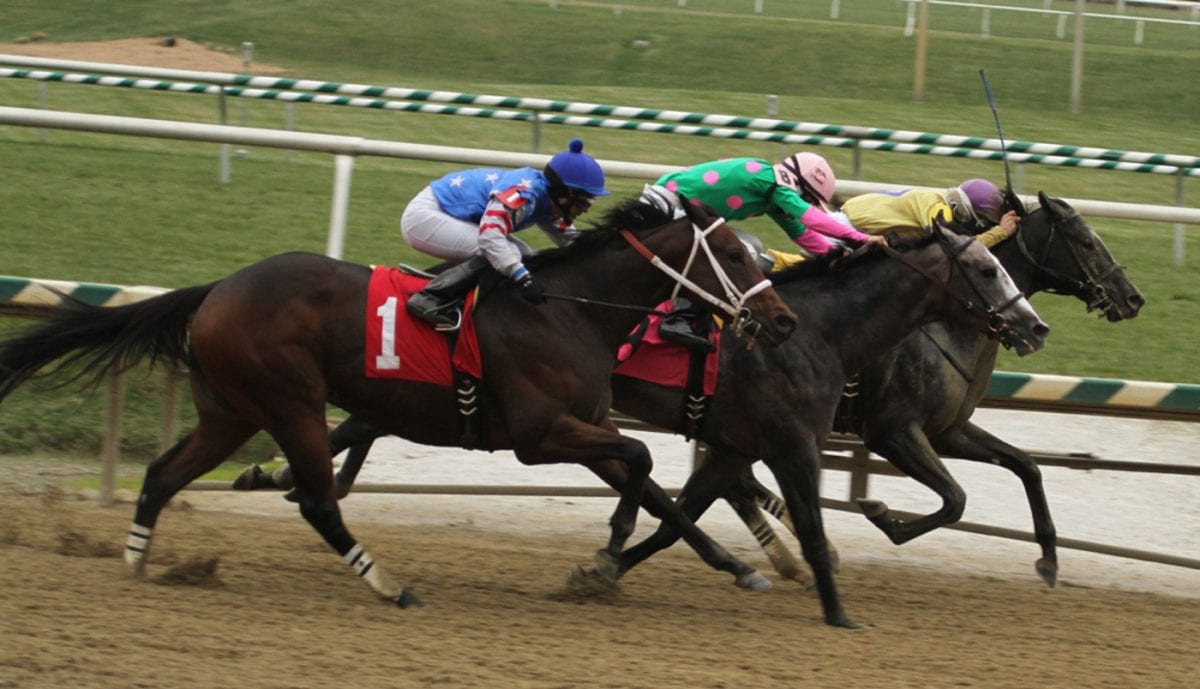Proposed legislation in West Virginia would shift slots and table game revenue away from racing and breeding and towards the Division of Human Services and would, said one representative of the state’s Thoroughbred horsemen, “annihilate the racing industry” (here, here, and here).
The proposal, SB 385 in the Senate and House Bill 4333, would reduce racing’s share of gaming revenues by 15 percent. Requested by Governor Earl Ray Tomblin (D) and introduced in the legislature by Senate President Jeff Kessler (D) and House Speaker Tim Miley (D), the bill would shift money from racing and various other recipients to the state Excess Lottery Revenue Fund and, via another bill, from there to Medical Services.
In a statement on its website, Charles Town Horsemen’s Benevolent and Protective Association (HBPA) president Randy Funkhouser implores his members to take action. “Make no mistake,” he writes. “This is an EMERGENCY SITUATION.”
The bill has been introduced in both Houses of the Legislature. In the Senate, it has been referred first to the Judiciary Committee, from which it will move to the Finance Committee. In the House, it was referred straight to Finance.
“This bill could move quickly through both Chambers,” Funkhouser warns.
In 2012 racing’s share of gaming revenue provided nearly $53 million to Thoroughbred purses, while wagering added around $11 million. Reducing that by 15 percent would remove $8 million in purses annually, about one-eighth of the total purses awarded that year.
In a fact sheet prepared for the HBPA, attorney David Hammer suggests that the consequences might be even more dire than suggested by a 15 percent decline in gaming revenue going to racing. Though the apparent intent of the bill is to reduce the share of gaming revenue received by racing and other constituencies by 15 percent, Hammer notes, “Due to the grammar of the bill, they will in actuality reduce by an additional 15% the share that [they] receive each and every year.”
If that analysis is accurate, that would lead to a nearly 50 percent drop in racing’s share of revenue in four years…
Elsewhere in West Virginia, the Kanawha County Circuit Court upheld the penalties — notably, a six-month suspension and a $5,000 fine — levied against Maryland-based trainer Chris Grove for a Class 1 positive at Charles Town (here).
Grove trainee Bubba de France had won a $5,000 lifetime claimer in July 2012 at Charles Town. But the horse tested positive for Nikethamide, a stimulant. Nikethamide is considered a Class 1 drug, a classification limited to stimulants and depressants “that have the highest potential to affect performance and that have no generally accepted medical use in the racing horse,” according to the Association of Racing Commissioners International Uniform Classification Guidelines.
Grove was not present at the track the day of the violation, and investigators found no evidence that his assistant on the grounds, Misael Ceciliano, had administered the drug.
Nevertheless, relying on racing’s “absolute insurer” rule, which provides that a trainer must ensure that a horse running in a race under his name is free from all prohibited drugs, the West Virginia Racing Commission’s hearing examiner had recommended the fine and suspension, which the Commission then imposed.
Grove, who also sought damages, had challenged the absolute insurer rule, but the court found no reason to overturn the Commission’s decision…







